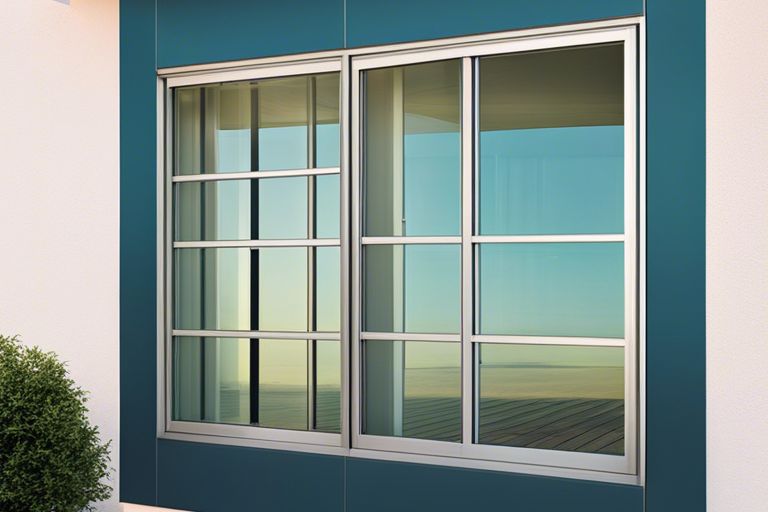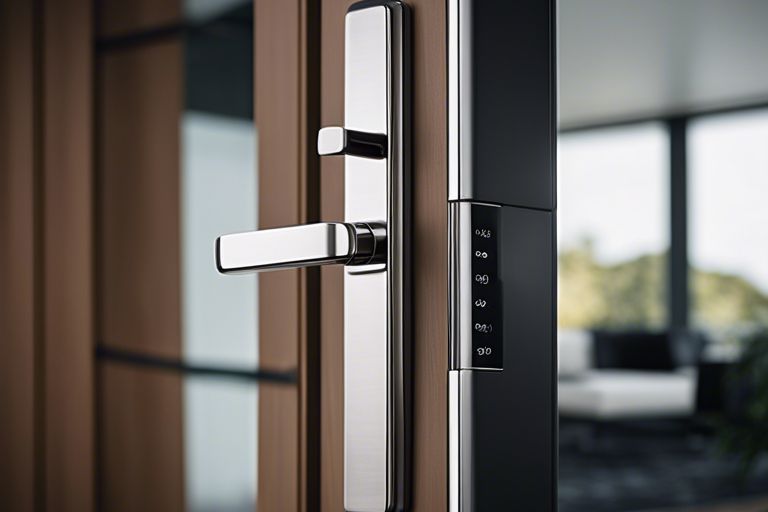Congratulations on your decision to invest in the most energy-efficient aluminium windows and doors for your home! Making the right choice will not only improve your living environment but also save you money in the long run. There are a few key factors to consider when choosing the best option for your needs. To guide you through the process, I recommend checking out this insightful Quora post on What are the ways to choose aluminium windows and doors? by a community of experts in the field. In this blog post, I will discuss the essential aspects to keep in mind to ensure that you make the most cost-effective and energy-efficient choice for your home.
Key Takeaways:
- Evaluate energy performance ratings: Look for windows and doors with high energy performance ratings, such as A++ for windows and A+ for doors, to ensure maximum energy efficiency and long-term cost savings.
- Consider thermal breaks and insulation: Choose aluminium windows and doors with built-in thermal breaks and insulation to minimise heat loss and improve energy efficiency, ultimately reducing energy bills and long-term costs.
- Invest in professional installation: Ensure that your aluminium windows and doors are installed by professionals to guarantee proper fitting and maximum energy efficiency, leading to long-term savings on heating and cooling costs.
Factors to Consider When Choosing Aluminium Windows and Doors
When choosing aluminium windows and doors for your home, there are several important factors to consider to ensure you make the most energy-efficient choice. Firstly, you should look at the overall construction and energy performance rating. This will give you an indication of how well the windows and doors will perform in terms of keeping your home insulated and reducing energy loss. Other important factors to consider include the material quality and durability, as well as the installation process and cost.
For a more in-depth analysis of the factors affecting the cost and sales of aluminium windows and doors, you can check out this comprehensive resource on Factors Affecting Aluminium Windows Prices Sales.
Energy Performance Ratings Explained
Energy performance ratings are crucial when choosing aluminium windows and doors for your home. These ratings provide an indication of how well the windows and doors will insulate your home, reduce heat loss, and potentially save you money on energy bills. The rating takes into account factors such as U-value, solar heat gain coefficient, and visible transmittance, all of which play a role in determining the energy efficiency of the windows and doors. A higher energy performance rating indicates better insulation and overall energy efficiency, making it a crucial factor to consider when making your choice.
Material Quality and Durability
When it comes to aluminium windows and doors, the material quality and durability are key considerations in ensuring a long-term, cost-effective investment for your home. High-quality aluminium frames are not only strong and durable, but also resistant to corrosion and require minimal maintenance. Additionally, the material quality can impact the insulation properties of the windows and doors, directly influencing the energy efficiency of your home. Recognizing the importance of material quality and durability is essential for making a well-informed decision for your home.

How to Identify Energy-Efficient Products
When choosing energy-efficient aluminium windows and doors, it’s essential to be able to identify products that will help you save on long-term energy costs. Look for key factors such as product labels and certifications, as well as the role of glass and glazing options in the overall efficiency of the product.
Tips on Reading Labels and Certifications
When shopping for energy-efficient aluminium windows and doors, it’s crucial to understand how to read product labels and certifications. Look for the Energy Star label, which signifies that the product meets strict energy efficiency guidelines set by the government. Additionally, check for certifications such as the BREEAM (Building Research Establishment Environmental Assessment Method) and LEED (Leadership in Energy and Environmental Design), which indicate a high level of environmental performance. Any product with these certifications is likely to offer superior energy efficiency and long-term cost savings.
The Role of Glass and Glazing Options in Efficiency
When it comes to energy-efficient aluminium windows and doors, the type of glass and glazing options play a significant role in overall efficiency. Look for products that feature double or triple glazing, which provide better insulation and reduce heat transfer. Additionally, choose windows and doors with a low-emissivity (Low-E) coating, which helps to reflect heat back into the room, keeping it warmer in the winter and cooler in the summer. These features are essential for maximising energy efficiency and reducing your long-term energy costs.
Installation and Maintenance for Maximum Efficiency
When it comes to ensuring the maximum energy efficiency of your aluminium windows and doors, the installation and maintenance play a crucial role. If you want to learn more about choosing energy-efficient windows, you can check out How to choose the most energy efficient windows – Rylock.
Professional Installation Tips
When it comes to installing your aluminium windows and doors, it’s crucial to seek professional help. Improper installation can lead to air leakage and poor insulation, which can significantly impact the energy efficiency of your property. Here are some tips for professional installation:
- Ensure that the frames are fitted properly to prevent air leakage.
- Use insulating foam to fill any gaps between the window or door frame and the wall.
- Properly seal all joints and moulding to prevent air infiltration.
The professional installation of your aluminium windows and doors is crucial to ensure maximum energy efficiency in your home or building. The materials and workmanship of the installation will directly impact the long-term savings on your energy bills. The performance of your windows and doors will also be improved by professional installation, ensuring that your property remains comfortable and energy-efficient.
How-to Maintain Your Windows and Doors
Proper maintenance of your aluminium windows and doors is essential for maintaining their energy efficiency. Regular cleaning and inspection are necessary to ensure that your windows and doors continue to perform optimally. Here are some maintenance tips:
- Regularly clean the glass and frames to remove dirt and debris.
- Inspect the weather-stripping and replace if damaged to prevent air leakage.
- Check for sealant integrity and reapply as needed to maintain proper insulation.
By following these maintenance tips, you can ensure that your aluminium windows and doors remain energy-efficient for years to come. The longevity and performance of your windows and doors depend on your regular maintenance routine. This will also contribute to cost savings and comfort in your home or building.
Making the Smart Investment
‘When it comes to choosing the most energy-efficient aluminium windows and doors for your home, it’s important to consider the long-term cost savings. Making a smart investment now can greatly benefit you in the future, both in terms of energy efficiency and overall cost-effectiveness.’
Long-Term Cost-Benefit Analysis
When you’re considering the installation of energy-efficient aluminium windows and doors, it’s crucial to conduct a long-term cost-benefit analysis. While the initial investment may seem higher compared to standard windows and doors, the long-term savings can be substantial. By reducing your energy consumption, you can significantly lower your utility bills over the years. This makes the higher upfront cost a worthwhile investment in the long run.
Additional Benefits Beyond Energy Savings
Aside from the obvious benefit of energy savings, there are additional advantages to investing in energy-efficient aluminium windows and doors. These products offer enhanced security, durability, and low maintenance requirements. They also provide better sound insulation, resulting in a quieter and more comfortable indoor environment. The sleek and modern design of aluminium windows and doors can also add value to your property, making them a smart investment in multiple aspects.

Conclusion
Ultimately, choosing energy-efficient aluminium windows and doors is an important investment for long-term cost savings. By selecting products that have high thermal performance, durable frames, and low-emissivity glazing, you can reduce your energy bills and decrease your carbon footprint. It’s crucial to consider factors such as U-values, air leakage, and solar heat gain coefficient when making your decision. Insist on reputable suppliers and manufacturers who offer guarantees and certifications to ensure that you are getting the most energy-efficient solutions for your home. Remember, the initial investment in high-quality, energy-efficient aluminium windows and doors will result in substantial cost savings and environmental benefits in the long run.
FAQ
Q: Why should I choose energy-efficient aluminium windows and doors for long-term cost savings?
A: Energy-efficient aluminium windows and doors can help reduce heating and cooling costs, increase the resale value of your property, and contribute to a greener environment.
Q: What factors should I consider when choosing energy-efficient aluminium windows and doors?
A: When choosing energy-efficient aluminium windows and doors, consider factors such as thermal performance, air infiltration, solar heat gain coefficient, U-value, and SHGC.
Q: How can I determine the thermal performance of energy-efficient aluminium windows and doors?
A: The thermal performance of energy-efficient aluminium windows and doors is determined by their U-value, which measures the rate of heat loss or gain through the material. A lower U-value indicates higher thermal performance.
Q: What is air infiltration and why is it important in choosing energy-efficient windows and doors?
A: Air infiltration refers to the amount of air leaking in and out of a window or door. It is important to choose energy-efficient windows and doors with low air infiltration to prevent energy waste and maintain indoor comfort.
Q: How does solar heat gain coefficient (SHGC) impact energy efficiency in windows and doors?
A: The solar heat gain coefficient (SHGC) measures the amount of solar radiation that enters a building through the window or door. Choosing energy-efficient windows and doors with a low SHGC can help reduce cooling costs in hot weather.
Q: Are there any certifications or standards I should look for when selecting energy-efficient aluminium windows and doors?
A: Look for certifications such as the British Fenestration Rating Council (BFRC), Energy Star, or the Passivhaus standard to ensure that the windows and doors meet high energy efficiency standards.
Q: What are the long-term cost savings associated with energy-efficient aluminium windows and doors?
A: By choosing energy-efficient aluminium windows and doors, you can benefit from reduced energy bills, lower maintenance costs, and potentially higher resale value of your property in the long run.






